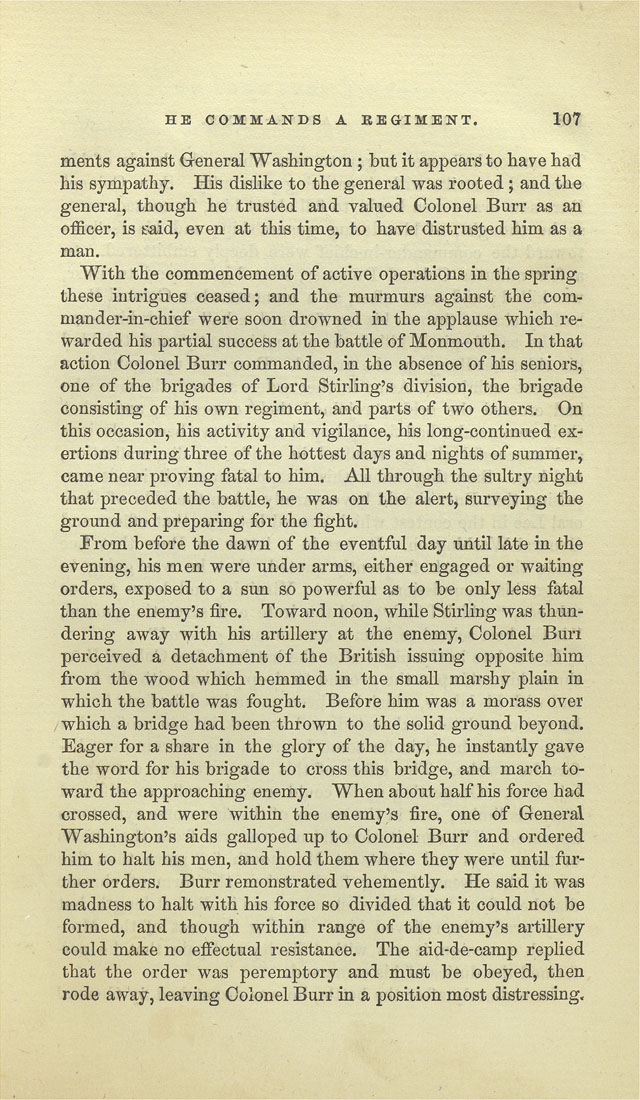HE COMMANDS A EEGIMENT. 107
ments against General Washington ; but it appears to have had
his sympathy. His dislike to the general was rooted; and the
general, though he trusted and valued Colonel Burr as an
officer, is said, even at this time, to have distrusted him as a
man.
With the commencement of active operations in the spring
these intrigues ceased; and the murmurs against the com¬
mander-in-chief were soon drowned in the applause which re¬
warded his partial success at the battle of Monmouth, In that
action Colonel Burr commanded, in the absence of his seniors,
one of the brigades of Lord Stirling's division, the brigade
consisting of his own regiment, and parts of two others. On
this occasion, his activity and vigilance, his long-continued ex¬
ertions during three of the hottest days and nights of summer,
came near proving fatal to him. All through the sultry night
that preceded the battle, he was on the alert, surveying the
ground and preparing for the fight.
From before the dawn of the eventful day until late in the
evening, his men were under arms, either engaged or waiting
ordei's, exposed to a sun so powerful as to be only less fatal
than the enemy's fire. Toward noon, while Stirling was thun¬
dering away with his artillery at the enemy. Colonel Bun
perceived a detachment of the British issuing opposite him
from the wood which hemmed in the small marshy plain in
which the battle was fought. Before him was a morass over
/which a bridge had been thrown to the solid ground beyond.
Eager for a share in the glory of the day, he instantly gave
the word for his brigade to cross this bridge, and march to¬
ward the approaching enemy. When about half his force had
crossed, and were within the enemy's fire, one of General
Washington's aids galloped up to Colonel Burr and ordered
him to halt his men, and hold them where they were until fur¬
ther orders. Burr remonstrated vehemently. He said it was
madness to halt with his force so divided that it could not be
formed, and though within range of the enemy's artillery
could make no effectual resistance. The aid-de-camp replied
that the order was peremptory and must be obeyed, then
rode away, leaving Colonel Burr in a position most distressing.
|








